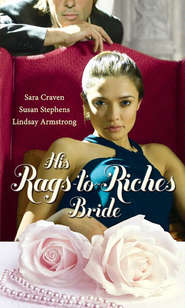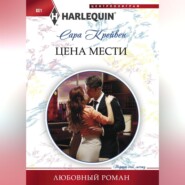По всем вопросам обращайтесь на: info@litportal.ru
(©) 2003-2024.
✖
His Reluctant Bride: The Marchese's Love-Child / The Count's Blackmail Bargain / In the Millionaire's Possession
Автор
Год написания книги
2018
Настройки чтения
Размер шрифта
Высота строк
Поля
She only wished she could wash away the memories of the heated pressure of his mouth, and the familiar, arousing scent of his skin just as easily.
Dear God, she thought, towelling her hair with more than necessary vigour, that is—frighteningly pathetic.
She put on her cotton housecoat, belting it securely round her slim waist, and trailed into the kitchen.
She needed a hot drink, but not with the additional stimulus of caffeine. She’d have enough trouble sleeping as it was through what little was left of the night.
No, she’d have a herbal tea instead, she decided. A tisana at bedtime was a habit she’d acquired in Italy. One of the good ones, she amended wryly.
While the kettle was boiling, she wandered back into the living room, and, for reasons she couldn’t properly explain, crossed to the window, and pulled back the edge of the curtain slightly.
The road below seemed empty, or was there an added density among the shadows opposite, in a gateway just out of the range of the street light?
No, she thought, hurriedly letting the curtain fall back into place. It was simply her imagination. Sandro had traced her through her work, simply and easily, so there was no need for him to compile a complete dossier on her.
Because if he’d done so, he’d have realised at once that her ‘live-in lover’ was pure invention, and told her so. And he’d have known, too, about Charlie …
She turned her head, staring at the chest of drawers, and the framed photograph that occupied pride of place. Charlie, on his second birthday. His father’s image smiling at her.
Sandro’s out of your life, she told herself feverishly. He’s gone.
Nevertheless, on the way back to the kitchen, Polly found herself taking Charlie’s portrait off the chest, and stowing it in the top drawer instead.
Better, she thought, safe than sorry, and shivered again.
Polly slept badly, in spite of her tisana. When morning came, she telephoned Safe Hands, said quite truthfully that she felt like death, then crawled back into bed and slept until lunchtime.
She woke with a start, thinking of Charlie. Why was she wasting time, when she could have the bonus of a whole afternoon in his company without the distractions of shopping and housework?
She rang her mother’s house but there was no reply, so she left a message on the answering machine to say she would be over to collect him in an hour.
She took a quick shower, then dressed in a casual blue denim skirt, topping it with a crisp white cotton shirt, and sliding her feet into flat brown leather sandals. She brushed her hair back from her face and secured it at the nape of her neck with a silver barette, and hung small blue enamel cornflowers on delicate silver chains from her earlobes.
She had some work to do with the blusher and concealer she kept for emergencies, or her mother would guess something was wrong. And Polly had enough bad news to give her without mentioning Sandro’s shock reappearance in her life.
But that was all over, so there was no need to cause her further distress, she told herself firmly, applying her lipstick and attempting an experimental smile which, somehow, turned into a wry grimace.
Positive thinking, she adjured herself, and, grabbing her bag, she left.
The house seemed unusually quiet when she let herself in, and Polly paused, frowning a little. Surely her mother hadn’t taken Charlie out somewhere, she thought, groaning inwardly. Was this the latest move in the battle of wits between them? She hoped not.
She kept her voice deliberately cheerful. ‘Mum—Dad—are you there?’
‘We’re in the living room.’ It was her mother’s voice, high-pitched and strained.
Her frown deepening, Polly pushed open the door and walked in.
It wasn’t a particularly large room, and her instant impression was that it had shrunk still further in some strange way.
The first person she saw was her mother, sitting in the chair beside the empty fireplace, her face a mask of tension, and Charlie clasped tightly on her lap.
The second was a complete stranger, stockily built with black hair and olive skin, who rose politely from the sofa at her entrance.
And the third, unbelievably, was Sandro, standing silently in the window alcove, as if he had been carved out of granite.
For a moment the room seemed to reel around her, then she steadied herself, her hands clenching into fists, her nails scoring her palms. She was not, under any circumstances, going to faint again.
She said hoarsely, ‘What the hell are you doing here?’
‘Is it not obvious?’ The topaz eyes were as fierce as a leopard’s, and as dangerous. His voice was ice. ‘I have come for my son. And please do not try to deny his parentage,’ he added bitingly. ‘Because no court in the world would believe you. He is my image.’ He paused. ‘But I warn you that I am prepared to undergo DNA testing to prove paternity, if it becomes necessary.’
Polly stared at him, her stomach churning, her heart pounding against her ribs. ‘You must be mad.’
‘I was.’ His smile was grim. ‘Before I discovered quite what a treacherous little bitch you are, Paola mia. But now I am sane again, and I want my child.’
Her low voice shook. ‘Over my dead body.’
He said softly, ‘The way I feel at this moment, that could easily be arranged. Do not provoke me any further.’
‘He’s going to take him away from us,’ her mother wailed suddenly. ‘Take him to Italy. I’ll never see him again.’
Horror caught Polly by the throat. She turned on Sandro. ‘You can’t do that.’
‘And what is there to stop me?’ His glance challenged her.
‘It—it’s kidnapping,’ Polly flung at him. She took a breath. ‘Although I suppose that’s an everyday occurrence in your world.’
And it was more common than she wanted to admit in her own, she thought numbly. There’d been numerous headlines in the papers over the past few years where children had been snatched and taken abroad by a parent. They called them ‘tug of love’ babies …
She looked with scorn at the other man, who had got quietly to his feet. ‘And what are you—another of his tame thugs?’
His brows rose. ‘My name is Alberto Molena, signorina, and I am a lawyer. I act for the marchese in this matter.’
Polly gave him a scornful glance. ‘Don’t you mean you’re his consigliere?’ she queried with distaste.
He paused, sending Sandro a surprised look. ‘May I suggest that you sit down, Signorina Fairfax, and remain calm? It would be better too if the little boy was taken to another room. I think he’s becoming frightened.’
‘I have a better suggestion,’ Polly flared. ‘Why don’t you and your dubious client get out of here, and leave us alone?’
His tone was still quiet, still courteous. ‘I’m afraid that isn’t possible. You must understand that your child is the first-born son, and thus the heir of the Marchese Valessi, and that he intends to apply through the courts for sole custody of the boy. Although you will be permitted proper access, naturally.’
He looked at Charlie, who was round-eyed, his knuckles pushed into his mouth. ‘But, believe me, it would be better if the little boy was spared any more upset from this discussion. We have a trained nanny waiting to look after him.’
He walked to the door and called. A pleasant-faced girl in a smart maroon uniform came in and removed Charlie gently but firmly from his grandmother’s almost frenzied grasp, talking to him softly as she carried him out of the room.
‘Where’s she taking him?’ Polly demanded shakily.
‘Into the garden,’ the lawyer told her, adding less reassuringly, ‘For the time being.’













